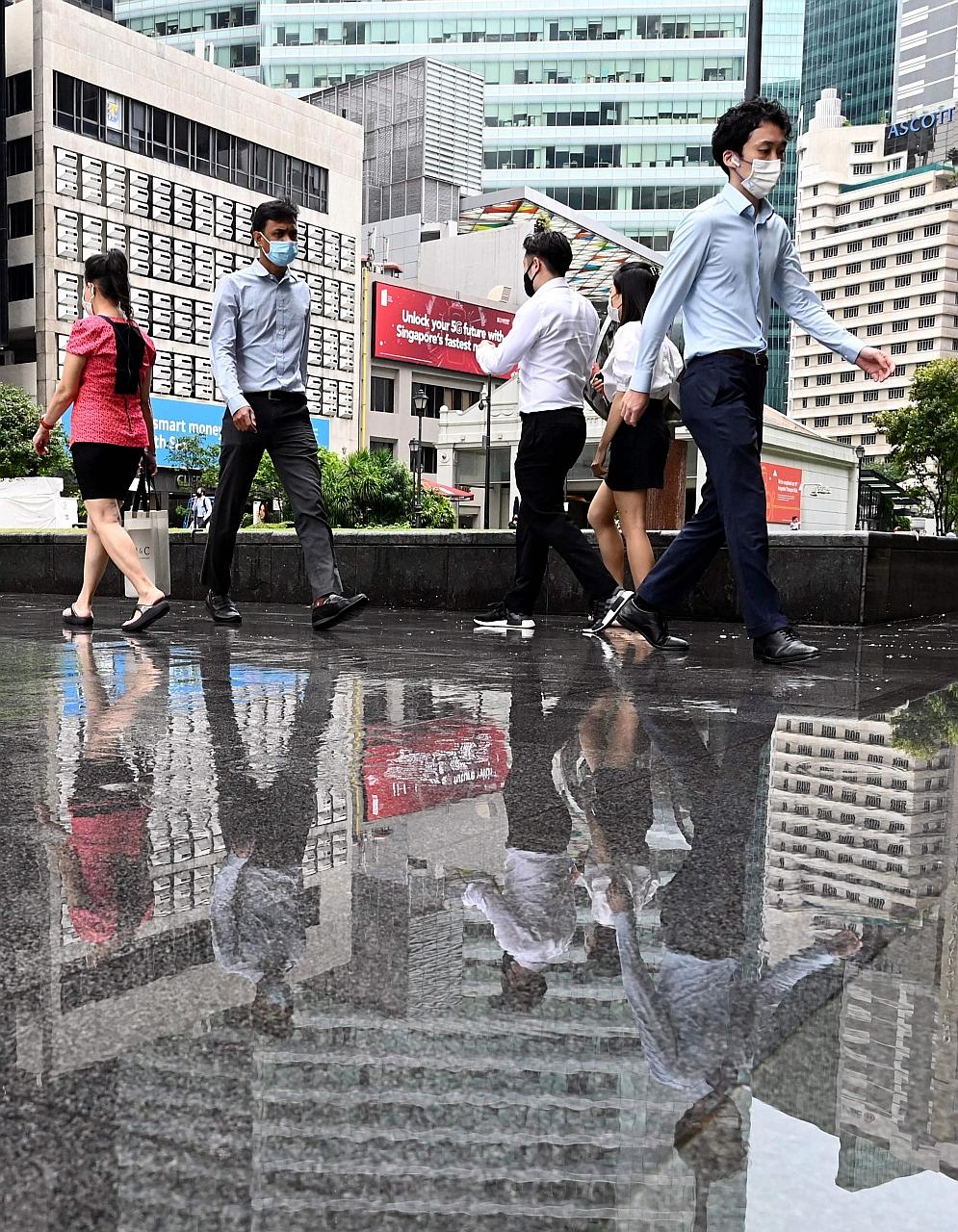Some HR roles may be taken over by robots in 5 years: Study
But tech advancements will also lead to highly specialised new roles in industry, which must reinvent itself
Sign up now: Get ST's newsletters delivered to your inbox

Human resource professionals have been the unseen heroes in keeping workers safe and organisations going during the Covid-19 pandemic, said Deputy Prime Minister Heng Swee Keat yesterday.
PHOTO: AGENCE FRANCE-PRESSE
Charmaine Ng
Follow topic:
Some roles performed by human resource (HR) managers are at risk of being taken over by robots in the near future, a study commissioned by the Ministry of Manpower (MOM) and the Institute for Human Resource Professionals (IHRP) has found.
Of the 27 HR roles analysed, 24 will be affected by technology to varying degrees in the next three to five years, according to the study conducted by advisory, broking and solutions firm Willis Towers Watson. The results of the study were released yesterday.
Eight of the roles most severely affected and at risk of being replaced are lower-level positions in areas such as talent management, performance and rewards, as well as organisation development.
The tasks in these roles are administrative in nature and can be automated with advances in robotic process automation, machine learning and social robotics.
Sixteen jobs, which are at the managerial and head levels, will be augmented by technology and require skills in areas such as data analytics.
Only three jobs will see minimal impact from automation: head of talent management, HR business partner and manager of organisation development.
Meanwhile, technological advancements will lead to the creation of new roles in HR that are highly specialised, such as that of an HR data analyst, the study found.
"In the long term, people analytics will be a key skill required by all roles in HR rather than being a dedicated role," said Willis Towers Watson in its report.
There are about 48,000 HR professionals in Singapore, with more than 90 per cent of them in professional, manager, executive and technician roles.
The firm said the study highlights the need for HR to reinvent itself by driving business transformation.
It added that leaders in the field must also recognise the need for new capabilities in HR, such as predictive analytics.
Investing in and adopting technology will increase efficiency and allow HR to deliver seamless and cutting-edge services and experiences more effectively, said Senior Minister of State for Manpower Zaqy Mohamad yesterday at the People Behind People Forum, where he announced the study's findings.
He said MOM will continue to support businesses in strengthening their HR capabilities and helping HR professionals gain new skills to remain relevant.

IHRP is also developing training courses for HR professionals to pick up skills to prepare for the digital transformation of the industry.
Deputy Prime Minister Heng Swee Keat, who also spoke at the forum, said HR professionals have been the unseen heroes in keeping workers safe and organisations going during the Covid-19 pandemic.
He said HR professionals will have an even more important role to play, as the pandemic has accelerated business transformation.
Mr Zaqy urged businesses and HR leaders to invest in technology and support skills development.
"HR professionals, too, need to step up and take ownership of their own skills development and adopt a growth mindset in embracing digitalisation," he said.

